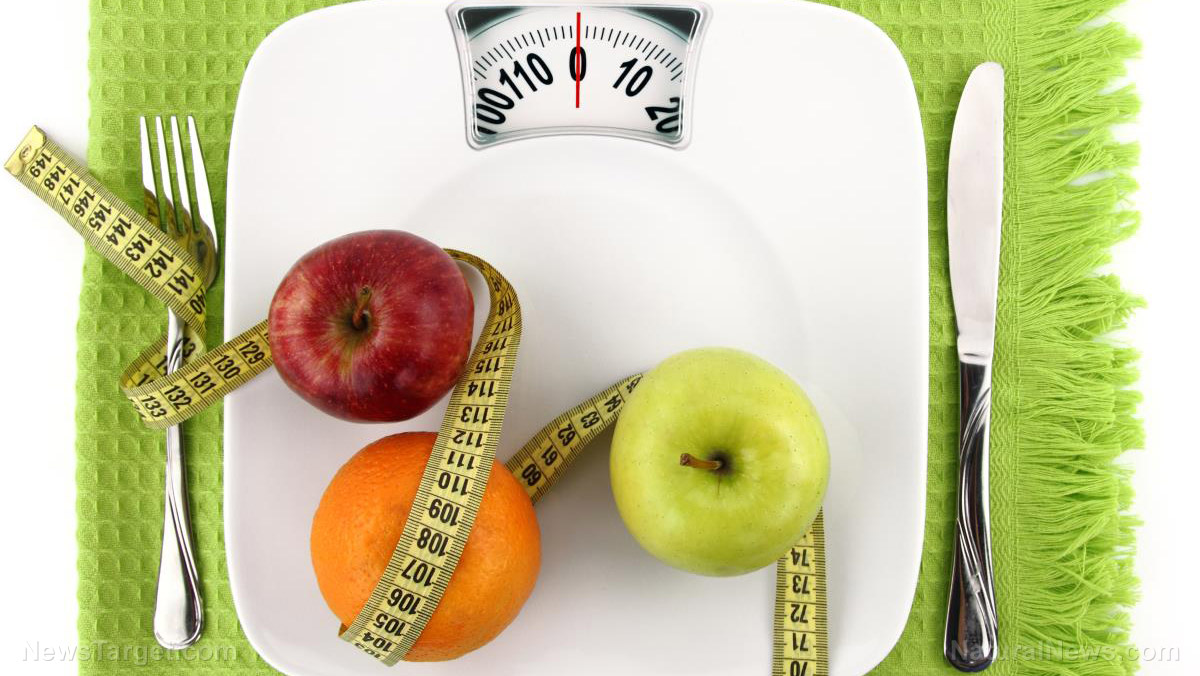Research suggests fad diets often lead to deficiency in essential nutrients
10/16/2018 / By Zoey Sky

There are different kinds of fad diets, from some calling for strict portion control to more outrageous ones that suggest the consumption of cotton balls to fool your body into thinking that you’re already full. Regardless of the fad diet most people are on, research suggests that they all have one thing in common: they could be causing nutrient deficiencies.
The research, which was published in the journal Frontiers in Nutrition, revealed that at least one-fourth of women in the U.K. “had iron and potassium intakes lower than the bare minimum recommended.” An alarming number of young British women follow fad diets, and these diets are linked to the development of nutrient deficiencies that can make them feel tired. Women on fad diets also have a higher chance of getting sick, according to the research data.
A lot of these women also lack crucial minerals like copper, magnesium, and potassium. Data showed that women aged 20 to 30 years old are deficient in nutrients such as calcium, iodine, and iron. Because of fad diets, there are also men and women who lack nutrients like calcium, copper, iodine, magnesium, and selenium. At least one in ten women consumed less iodine, magnesium, and riboflavin than what they required.
The report referenced data from 3,238 adult participants who answered the Public Health England’s (PHE) National Diet and Nutrition Survey. The researchers involved in the study said that most women are deficient on seven out of eight important minerals.
The men were deficient too, but not as bad as the women. However, the researchers observed a rise in zinc deficiencies among the men. Zinc is a nutrient that is necessary for male reproductive health.
Mother Nature's micronutrient secret: Organic Broccoli Sprout Capsules now available, delivering 280mg of high-density nutrition, including the extraordinary "sulforaphane" and "glucosinolate" nutrients found only in cruciferous healing foods. Every lot laboratory tested. See availability here.
Fad diets are to blame, warned the researchers. The ones to avoid include those that instruct dieters to eliminate entire food groups. Vegetarian or vegan diets are some of the biggest culprits, but other diets may encourage individuals to avoid dairy, gluten, grains, and sugar altogether.
Nutrients are necessary for overall health
Your body requires a specific amount of minerals and nutrients to it can function normally. If you’re deficient in one or several of them, you may suffer from negative side effects.
To stay healthy, ensure that you eat foods which contain these eight important minerals and nutrients.
- Calcium – A calcium deficiency can result in weak and brittle bones. Calcium is also crucial for nerve and muscle function. Sources include almond butter, broccoli, catfish, cheese, eggs, leafy greens, milk, salmon, tuna, and yogurt.
- Copper – You need copper so your body can use the energy from the food you consume. Copper also transports iron in the body, and it boosts your hair and skin color. Copper is also vital for your immune system. Copper-rich foods include beans, liver, and nuts.
- Iodine – You need iodine for healthy hormone functioning, especially for the brain and nervous system. Sources include milk and seafood.
- Iron – Iron is necessary for the formation of red blood cells. Iron, which is crucial for brain function, also stops you from feeling fatigued. Iron-rich foods include eggs and meat.
- Magnesium – Magnesium is also needed for proper muscle function. Additionally, it regulates electrolytes so you can stay hydrated. Magnesium also keeps your bones, cells, and nervous system healthy. Sources include green vegetables, milk, and nuts (e.g. cashews).
- Potassium – A potassium deficiency will prevent your muscles and nervous system from functioning normally. Potassium also regulates your blood pressure. Foods that contain potassium include grains, legumes, meat, and milk.
- Selenium – Selenium keeps your hair and nails healthy. It’s also crucial for men’s reproductive health since it can boost sperm count. Selenium is often found in seafood.
- Zinc – Zinc is important for fertility in both men and women. Additionally, it boosts your immune system, hair, skin, and nails. Sources include nuts, poultry, and red meat.
Unless you have a medical condition that forbids certain food groups, the National Health Service (NHS) warns against the removal of entire food groups from your diet.
Helen Bond, a dietitian, said that most fad diets tell people to avoid carbohydrates, dairy, and starch. However, she warned that this is harmful for different reasons. Bond advised that while carbohydrates and starch are linked to weight gain, the key to weight loss is portion control.
She suggests eating a “tennis ball portion of rice or pasta,” which is often enough. Carbs and starch also contain important components like fiber, magnesium, and B vitamins.
A balanced diet and maintaining a healthy weight
Unlike harmful fad diets, eating right can help you maintain a healthy weight. This is crucial to your overall health. An unbalanced diet may cause obesity, and being overweight is linked to various health problems such as:
- Asthma
- Certain types of cancer
- Heart disease
- High blood pressure
- High cholesterol
- Kidney and liver disease
- Stroke
- Type 2 diabetes
If you really want to lose weight, don’t cut out whole food groups. The best thing to do is to exercise regularly and follow a low-calorie diet.
You can read more articles about healthier ways to lose weight and stay fit at Slender.news.
Sources include:
Tagged Under: diet fads, dieting, Diets, essential nutrients, exercise, exercise and fitness, fad diets, fitness, Frontiers in Nutrition, longevity, nutrient deficiency, obesity, physical activity, proper diet, Public Health England, slender, weight loss



















